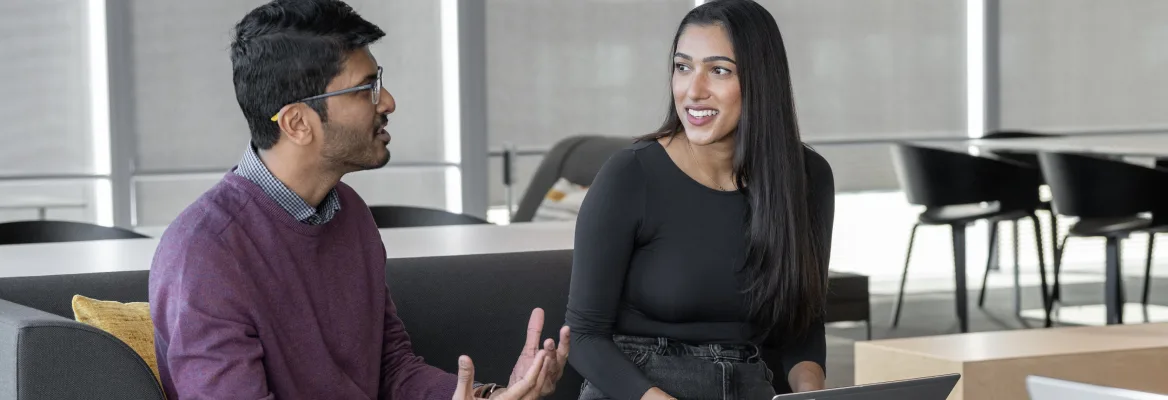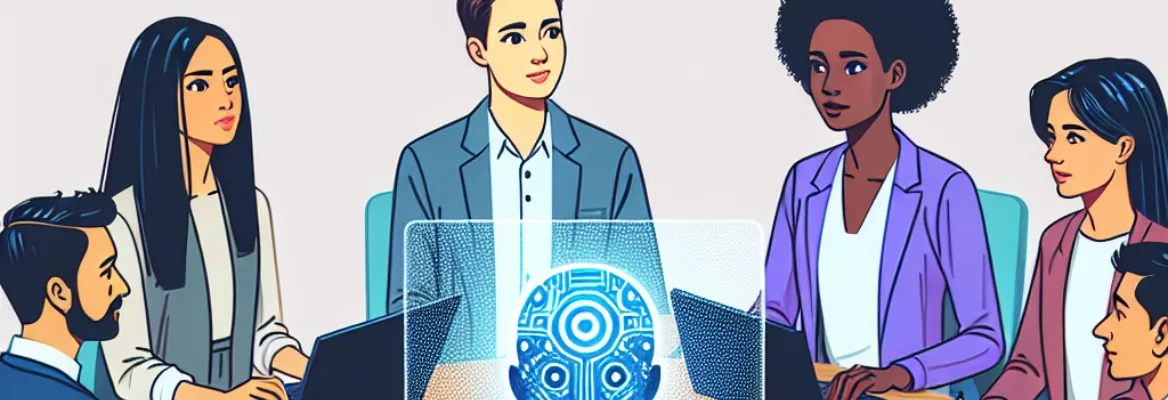How to be a mentee: getting the most out of a mentorship
Culture · Jan 31, 2024
Mentorship offers many benefits to your professional and personal life. While being mentored is a great opportunity, it also requires effort and planning to ensure its success. In this post, I will share some of my tips on how to be a mentee.
Benefits
Why should you seek out mentorship? Some of the benefits include:
Receiving advice
Developing skills and knowledge
Gaining another viewpoint
Growing your network
Reflecting on your career path, goals and roadblocks
How to find a mentor
Internal programs: Many companies, such as TELUS, have internal mentorship programs available. These mentorship programs typically have expectations and responsibilities prepared for you, making it easier to get started and connect with your mentor. These programs often match you with a mentor, meaning they may assess your skills and goals and pair you with a mentor who best matches those.
Reach out directly to role models at your company: Document any speakers or leaders you admire and reach out to them directly. Most often, they are happy to chat with you and will gain as much value as you from the mentorship.
Speed mentoring: Speed mentoring events allow you to connect with several mentors, each for a short period (often 10-20 minutes). You can ask the same question to many mentors and receive many insights. Further, it's an opportunity to find a mentor who you connect with and who can potentially develop into a longer-term mentorship.
Diversity of role models: Seek out role models from different backgrounds. Look for various roles, seniorities, educations, career and personal backgrounds. Learning from a diverse set of humans will give you a better outlook on career development and opportunities.
How often should you meet with your mentor?
I have found meeting with my mentor for 30 minutes every two weeks to be a good fit. I have also previously met with mentors monthly for 1 hour. Decide on a schedule that meets your and your mentor's needs and adjust as you go along.
How long should the mentorship last?
Setting a concrete timeline in advance, such as 3, 6, or 12 months, may help to structure your mentorship. Ultimately, the goal of mentorship is growth. When you and your mentor find the mentorship is no longer providing the same level of growth, it may be a good time to wrap up.
What to talk about with your mentor?
Below are some topic ideas you can use with your mentor. While these ideas may inspire your meetings, mentorship should be organic. In addition to any planned agendas, use each meeting to provide updates, wins, and roadblocks and foster a relationship.
Introductions
I recommend spending some time at the start of the mentorship getting to know your mentor and allowing them to get to know you, encouraging more open and effective communication moving forward.
Topic Ideas:
Introductions
Long-term career goals
What do you enjoy? What drives you?
Skills and weaknesses
Hobbies and personal lives
Goal Setting
The start of the mentorship is also a great time to set clear goals and expectations. Find areas where your and your mentor's skills best match, and set realistic expectations on how you can best grow together.
In addition, sharing your individual career goals for that period can help your mentor better support you and keep you accountable.
Career Development
Allow your mentor to share their career story and learnings.
Questions you can ask your mentor:
What is your career story?
Did you make any horizontal career changes as opposed to vertical moves?
What challenges did you face in your career?
What are the most important lessons that you have learned?
What advice would you give to someone more junior to achieve a role like yours?
Leadership Development
Develop your leadership skills, such as management, coaching, and organization, with the help of your mentor.
Topic Ideas:
Bring situational questions from your everyday work. Ask your mentor how they would handle those situations.
Discuss their preferred leadership styles.
Ask for feedback on your leadership skills: How has your mentor found your communication, your planning of meetings, etc?
Technical Development
Your mentor will have a wealth of technical experience and knowledge. You can leverage this to develop your skills and seek growth opportunities.
Questions you can ask your mentor:
Based on my goals and experience, what technical skills would you suggest I develop?
I am interested in <area of interest>. Do you have any points of contact within that area? Do you know of any projects within that area where I may be able to get involved?
Personal Development
Mentorship is a great reflection opportunity to understand what you want to do in your career and how to get there.
Questions you can ask your mentor:
What are some personal development opportunities that you would recommend for me? These may include projects, events, courses, certifications and continued education.
How do you make time for personal development on top of your core work tasks?
How do you build your personal brand?
After the mentorship
Some steps you can complete after your mentorship:
Thank your mentor: Someone invested their time and resources in your growth - that is amazing! Show your gratitude during and after the mentorship.
Put what you learned into action: The best way to show gratitude is to apply your new skills and grow from the mentorship experience.
Continue supporting each other: You can continue to meet with your mentor for advice and support as needed. It may also be possible to leverage this connection into future opportunities, such as a reference for you or a teammate in projects.
With proper preparation, mentorship can be rewarding. I hope this post has helped provide some inspiration for your next mentorship.



